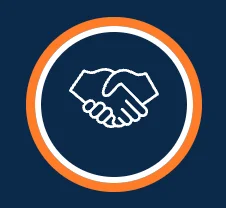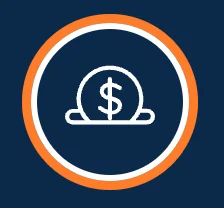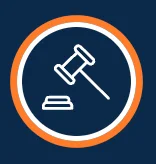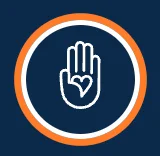Slip and fall accidents often occur in retail stores, such as supermarkets, where food and liquid often spill onto aisle floors, creating a safety hazard for any customer who happens to pass by. All South Carolina store operators know they need to have reasonable procedures in place to inspect their aisles and identify–and clean up–any such hazard before a customer is hurt. But does that automatically make the store responsible for a customer’s injuries if they do get into a slip and fall? How do you prove store owner liability in SC slip and fall claims?
Understanding the Duty of Care Under South Carolina Law
The short answer is “no.” Slip and fall accidents are governed by South Carolina premises liability law. This is a form of common law applicable to accidents where a person is injured while they are lawfully present on someone else’s property. As with any form of personal injury claim, premises liability requires proof of negligence on the part of the property owner.
Negligence requires three things:
- The property owner owed a duty of care under the law to the plaintiff (i.e., the person injured in the slip and fall accident)
- The property owner breached that duty of care in some way
- The property owner’s breach was the proximate cause of the plaintiff’s injuries
The exact “duty of care” a property owes to the plaintiff depends on the plaintiff’s legal status at the time of the slip and fall accident. In this context, South Carolina law classifies the injured person as an invitee, licensee, or trespasser. Here is a brief explanation of how the three differ:
- An invitee is someone invited onto the property of the owner. If we are talking about a retail store, just about any customer who visits the property during regular business hours is considered an invitee.
- A licensee is someone who is lawfully on the property for personal reasons. If you invite someone into your home for a social visit, they are considered a licensee.
- A trespasser is someone who is on the property without the owner’s permission. This would include someone who remains on the property after they no longer have permission to do so, such as remaining in a store after its closing time.
Actual vs. Constructive Knowledge
Concerning an invitee, South Carolina requires the property owner to exercise the duty of “reasonable or ordinary care” for the invitee’s safety. If we are talking about a person injured in a slip-and-fall accident at a store, this duty generally means one of two things:
- The customer’s injury was the result of a specific act by the store’s management or employees that created the dangerous condition that led to the slip and fall.
- The store had “actual or constructive knowledge” of the dangerous condition and failed to remedy it.
In most slip and fall cases, the store owner did not create the dangerous condition. So it is often a matter of proving the store had “actual or constructive” knowledge. Actual knowledge is just what it sounds like. For example, if someone reports to the manager that there is spilled liquid in the middle of a store aisle, the store now has actual knowledge of a hazard that could injure someone.
“Constructive” knowledge is a bit trickier. In simple terms, constructive knowledge means the hazard existed for a sufficiently long enough period that the store’s management should have known there was a problem, even if there is no evidence they had actual knowledge.
What counts as “long enough” to create constructive knowledge is not always clear. In general, however, if the hazard was only present for a few minutes before the slip-and-fall accident occurred, then South Carolina courts tend to find the property owner is not at fault. In contrast, if the hazard was present for over an hour before the accident, that is more than enough time to impute constructive knowledge.
This assumes that the plaintiff can prove how long the hazard was present. Again, South Carolina law is often not on the slip and fall victim’s side. For decades, South Carolina courts have made it clear that a jury is not allowed to speculate or guess as to how long a hazard might have been present.
For example, in a recent decision, Graham v. Wal-Mart Stores East, LP, a federal judge applying South Carolina law dismissed a slip and fall lawsuit against Wal-Mart. The plaintiff was shopping at a Wal-Mart here in Greenville when she “stepped into a liquid substance” in the dairy aisle and fell.
Unfortunately, the plaintiff couldn’t establish what the “liquid substance” was or how long it had been present in the aisle before her fall. Wal-Mart turned over surveillance video footage of the accident, which showed “nearly two dozen individuals” walking through the same area, without incident, in the 20 minutes before the plaintiff’s fall. No other person slipped, nor did the video show any liquid substance in the aisle. Three Wal-Mart employees who worked in the store that day also testified that they did not see any liquid spill onto the floor.
Under the circumstances, the judge felt he had no choice but to dismiss the plaintiff’s lawsuit.
Although the plaintiff alleged the spill could have been on the floor for upwards of an hour before her accident, the judge said that was just speculation, which was not permitted under South Carolina law. Indeed, the plaintiff admitted there was no way to know just when the spill occurred.
Injured in a Slip and Fall Accident? Our Greenville Personal Injury Lawyers Can Help
Cases like the one described above illustrate the uphill battle many South Carolina slip-and-fall accident victims face when it comes to seeking compensation. To prove constructive knowledge, you need to start gathering evidence as soon as possible following the accident. This includes making sure the store preserves its surveillance video, someone takes photos of the accident site, and any potential witnesses are identified. Never assume that a judge or jury will simply accept your word that the store must have known about the problem.
The experienced Greenville personal injury attorneys at Jordan Law Center can assist you with investigating your slip-and-fall accident and building your case. Contact us today to schedule a consultation.







“There is not enough GREAT THINGS I could say about Jordan Law Center.”